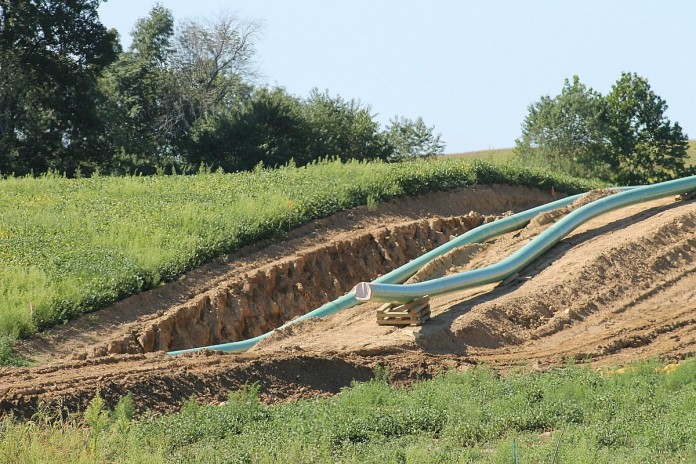Shell’s Falcon pipeline is under investigation by state and federal regulators after a whistleblower reported issues with the construction of the line.
According to documents acquired by the environmental group FracTracker Alliance through a public records request, a whistleblower contacted the Pipeline and Hazardous Materials Safety Administration, or PHSMA, in 2019 with allegations that the pipeline may have been built with a defective corrosion coating.
Other environmental concerns brought up by the whistleblower, a former Shell employee, were referred to the Pennsylvania Department of Environmental Protection.
Pennsylvania DEP Secretary Patrick McDonnell wrote a letter in February 2020 to Howard Elliott, then-administrator of the PHMSA, after the federal agency decided through its investigation that there were no deficiencies in the coatings.
McDonnell believed the investigation by the PHMSA was “incomplete” and asked the agency to conduct a more thorough investigation into the allegations. The letter states that the DEP found information relating to the corrosion issues through its investigation. The DEP oversees the environmental impact of pipelines.
“Our staff was alarmed by the whistleblower’s allegations and concerned for the safety of people living along the pathway of the Falcon Pipeline,” McDonnell wrote. “These are very serious allegations.”
The letter states that the DEP found other witnesses who reported to have “first-hand knowledge of bad corrosion coatings, falsification of records and reports and retaliatory firings and other actions by Shell.”
The 98-mile pipeline was built to feed Shell’s Beaver County ethane cracker plant, which is still being built. The plant, expected to be operational sometime in 2022, will process ethane, a component of natural gas, into plastics.
The line runs through parts of Pennsylvania, Ohio and West Virginia and will connect three major ethane points: Houston, Pennsylvania, Scio, Ohio, and Cadiz, Ohio.
Shell officials did not respond to a request for comment from Farm and Dairy, but told other media outlets that representatives from the PHMSA conducted on-site audits of the pipeline and found no issues with the coatings. The pipeline is complete, but not in service yet.
A spokesperson with PHMSA told the Pittsburgh Post-Gazette that an investigation is ongoing. The Pennsylvania DEP is also continuing to investigate.
Corrosion is one of the two most common causes of pipeline failure, according to the PHMSA. Data shows that corrosion was the cause of 31 serious pipeline incidents since 2001, causing seven fatalities and 52 injuries nationwide.










